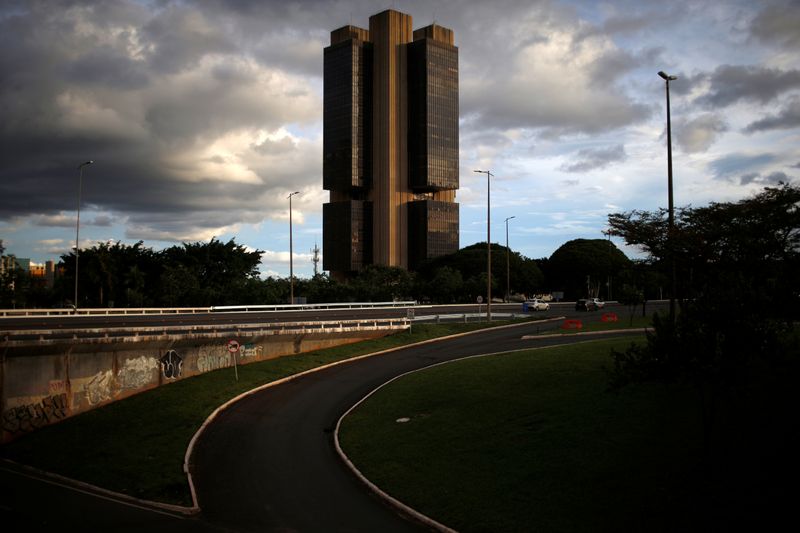BRASILIA (Reuters) – Short-term asset price moves such as the recent rebound across markets will not influence Brazilian monetary policy, central bank director Fabio Kanczuk said on Tuesday, but policymakers are watching how the exchange rate and commodities feed into inflation expectations.
Speaking in an online live event hosted by Credit Suisse, Kanczuk said the effect on inflation from exchange rate and commodity price changes has never disappeared, and that close attention must be paid to the recent moves in both.
After slumping more than 30% this year to a record low of almost 6.00 per dollar in May, Brazil’s real has rallied some 20% to push through 5.00 per dollar. Commodities such as oil and metals, denominated in dollars, have also rebounded strongly.
Brazil’s benchmark IPCA consumer price inflation is currently running at 2.40%, well below the central bank’s 2020 target of 4.00%. As the economy tips into a steep coronavirus-fueled decline, inflation is expected to fall even further.
Kanczuk said the country’s large output gap is pushing inflation lower, but absent that, the rising neutral rate of interest would be pulling inflation in the opposite direction.
He also noted that Brazil’s weak fiscal position could embed a level of risk premium into inflation expectations, which would point toward higher interest rates than otherwise might be the case.
The central bank will announce its latest interest rate decision next week. Economists expect it to lower the benchmark Selic rate to a new low, the only question being whether it is by 50 basis points to 2.50% or by 75 bps to 2.25%.
Kanczuk repeated the line, shared recently by central bank President Roberto Campos Neto, that any bond buying will be done not for the monetary policy aim of lowering long-term borrowing costs but to smooth out any market dysfunction.
(Reporting by Jamie McGeever and Marcela Ayres in Brasilia; Editing by Matthew Lewis)



















